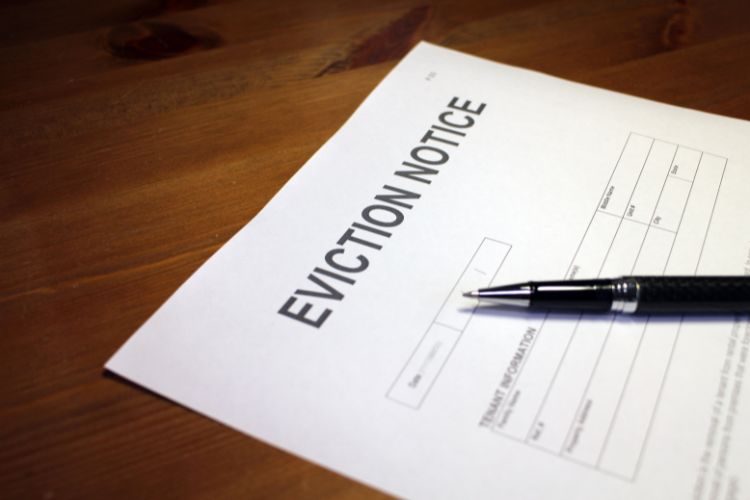
Owners in strata schemes can rent out their units. In such arrangements, both parties must have a good enough understanding of their rights and responsibilities, especially where an owners’ corporation is involved.
If you’re a member of a strata committee trying to protect the community, or you’re a strata tenant looking to maintain your tenancy, a common question to wonder is: can strata evict a tenant?
Today’s guide explains the measures strata can take toward evicting a tenant and discusses possible ways for tenants to dispute it.
Is Strata Allowed To Evict a Tenant?
In strata ownership, units such as lots and apartments are constructed on a piece of land that’s considered common property. Each unit has an individual owner who, along with the rest of the strata owners, has the right to use shared spaces and facilities such as driveways and pools.
Tenants in strata schemes –as temporary residents– share some of the rights and responsibilities of the owners, including access to facilities within the common property and contributing financially to upkeep those areas.
In every strata property, there’s a strata committee or owners corporation in place to oversee the common affairs of the community. So, if for some reason this committee deems a tenant unruly, can strata evict said tenant?
The answer is yes and no.
Strata cannot directly evict a tenant or issue them a Notice to Leave. Evicting a tenant is the right and responsibility of the property manager or the landlord.
However, strata committees –led by strata managers– can take certain legal proceedings that may eventually lead to the eviction of tenants by a court order.
What Can a Strata Committee Do To Evict a Tenant?

So what exactly are those legal proceedings?
When strata owners corporations are aiming to evict tenants, strata managers can issue them with a compliance or eviction notice. This is the first step, and the tenant has to have committed a serious offense or violated the bylaws.
The notice specifies a timeframe for the tenant to comply. If the tenant continues to breach the bylaws and doesn’t leave after the set date, strata managers can turn to their local state CAT (Civil and Administrative Tribunal) to file a claim against the tenant.
What Reasons Can Starta Use to Evict a Tenant?
Before we get into the details of the eviction process, it’s helpful to understand the grounds on which strata managers can base an eviction notice. You’ll notice that these reasons are also grounds for a landlord or property manager to evict a tenant.
Tenancy Agreement Breach
Strata managers are entitled to issue a compliance or eviction notice if the tenant doesn’t comply with the terms of their lease agreement.
Examples of why the owners corporation may decide to terminate your tenancy include:
- Having unauthorised occupants in your rental unit.
- Having unauthorised pets on the premises.
- Repeatedly disturbing the peace, comfort, or privacy of other residents. For instance, causing excessively high noise levels.
- Making changes to the unit without approval from the owners corporation.
- Failing to keep the unit reasonably hygienic.
Property Damage
If a tenant causes damage to their rental property or the common area, strata managers have the right to give them a compliance or eviction notice.
Keep in mind that the costs to repair damages to items inside your property are not related to the eviction notice, and are covered by the building contents insurance.
Maintenance of the strata buildings, shared spaces, and facilities falls under the main responsibilities of the owners corporation. As such, the committee is entitled to take legal action against anyone who sabotages the premises.
Failure to Make Overdue Rent or Strata Fees
If a tenant doesn’t pay rent after a certain period has passed, strata managers may attempt to terminate their tenancy. The same goes for failure to pay overdue strata levies or fees, where the strata committee may take legal action to obtain the owed amount.
For further reading on fees and costs to manage a property, see here for what property managers charge.
Illegal Activity
Last but not least, engaging in illegal activity within the strata premises can push the owners corporation to issue a termination notice. Examples of illegal activities include using, selling, or possessing drugs.
How Does the Eviction Process by Strata Happen?
As we explained earlier, a strata committee can assume legal proceedings that result in the eviction of an unruly tenant.

The process starts with strata establishing valid grounds to issue an eviction notice, which we talked about in the section above.
With a reason to merit eviction in place, strata managers produce a notice to give to the tenant.
The notice must state the name and address of the tenant, as well as the eviction reason and the timeframe for fixing the problem. It should also include the time and date of vacating the unit.
What if the Tenant doesn’t Comply with the Notice?
If –within the specified time– the tenant doesn’t rectify the breach or doesn’t vacate the property, the strata owners corporation can contact the state’s Tribunal to file for termination.
The application must include supporting evidence of the claimed reason for eviction. Photos and documents are acceptable proof.
The court will then set a date for a hearing to examine the presented evidence, hear the tenant’s case, and decide if the situation warrants eviction.
If the court finds the eviction warranted, it’ll issue an eviction order with a specified time window for the tenant to move out.
Can a Tenant Challenge a Strata’s Eviction Notice?
Yes, a tenant can challenge an eviction notice from strata if they believe they’re being treated unjustly.
The tenant can negotiate with the strata manager or committee to get the issue resolved peacefully by asking for mediation.
If the strata committee has produced an order from the Tribunal, the tenant can appeal against it.
Conclusion
Strata can’t directly issue a Notice to Leave to evict a tenant as this remains an exclusive responsibility of the landlord or property manager. However, strata can give the tenant a notice of compliance or eviction, followed by an order for eviction if necessary.







